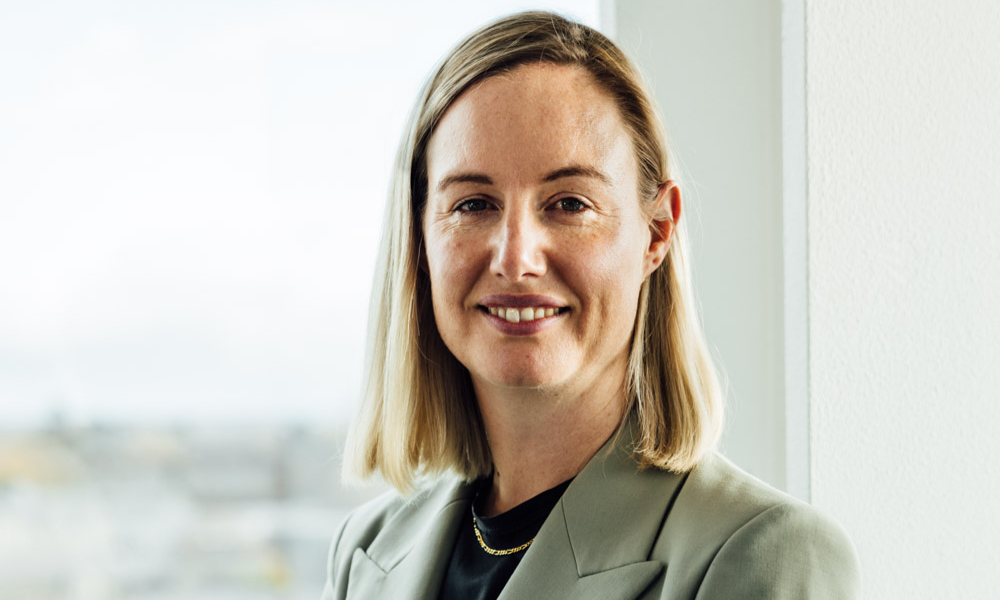
The Anthony Harper lawyer wants to equip young lawyers for "future-proof" careers

In some ways, Lucy Robinson went through the process of being a junior lawyer twice. Now that she’s in a place to mentor young lawyers as a special counsel at Anthony Harper, she wants to see junior lawyers adequately trained and equipped for “future-proof” careers – especially in a time when AI is increasingly integrated into basic legal tasks.
In the third part of this interview, Robinson talks about the process of going digital and what she’s been doing as a wellbeing ambassador at the firm.
I think it's obviously going to have huge opportunities, but also some really big challenges. One of those challenges is the training of juniors: how do we make sure we've got people coming through that have the time in the saddle, if you will, of shadowing someone and doing what is essentially an apprenticeship, when we've also got the technology of computers that can spit out research or drafts or base documents to the 80% level that you might expect a graduate to be able to do?
It's balancing the efficiencies that [AI] creates with also making sure we're supporting junior lawyers and making sure we've got training for people so that their careers will be future proof in a way where they can handle all of the challenges that will be coming as well.
Well, I think it's ongoing. When you've done something for 20 years, it's really hard to then change the way that you do things. Using AI is like learning a new language – it's upskilling. You're only going to get out what you put in. And the challenge for those of us that have done things a certain way for a really long time is to relearn and stay relevant and stay adaptable so that we can communicate with those that have grown up with that technology and know exactly what it's like and are used to a different framework of how to use technology.
I think also it changes the speed at which you can deliver work to clients for the better. We can get a lot of work out in a really short amount of time, but the balance of that is making sure that it’s sustainable and still not overburdening lawyers. How are we going to make sure that we are still maintaining work life balance and being healthy people? What does work look like now – does it mean available all the time? How are we going to structure the new workplace? Because we've got technology, that sort of changed it all completely.
For the business of law in general – not just property, but all aspects of law – it goes back to technology. Technology's changing what a workplace is. There’s dealing with people that have grown up with technology and are different to the older, senior lawyers that have been working for a really, really long time. I think there are different expectations now about what a workplace provides and needs to give to an employee, and it's working around the differences between how technology has meant that we can work together.
There is tension there between the way things have always been and a new fresh outlook; new people coming through have different expectations. So I think lots of industries are struggling with that change that technology is bringing: the older methods of getting ahead in law – which might mean long hours. staying later than anyone else, or traditional models – against then the new generation of people, a new generation of requirements. We're focusing on work-life balance, we're focusing on wellbeing. We want people to feel good when they come into the office and not just feel like they're a cog in the machine.
I think for everyone, it's always a work in progress. Some weeks I think,” wow, I've had been able to go to the gym lots, and I've been to the movies. That makes me feel like I'm doing lots outside of work. Then there might be a week where some of that has to slip away because you're really busy. So for everyone, it will look different as to when you feel like you have got that balance right and you're always going to be working on getting that balance right.
I'm one of the wellbeing ambassadors here at Anthony Harper, so I have been on quite a few training programs and courses, and we have a group that catches up to talk about how we can focus on wellbeing here and make sure that people who have different needs and different types of work can have a space that can be flexible and also a bit dynamic.
In the final part of the interview, Robinson tells us about helping to launch a networking group for women in Christchurch, and what she’s excited about in the coming year.